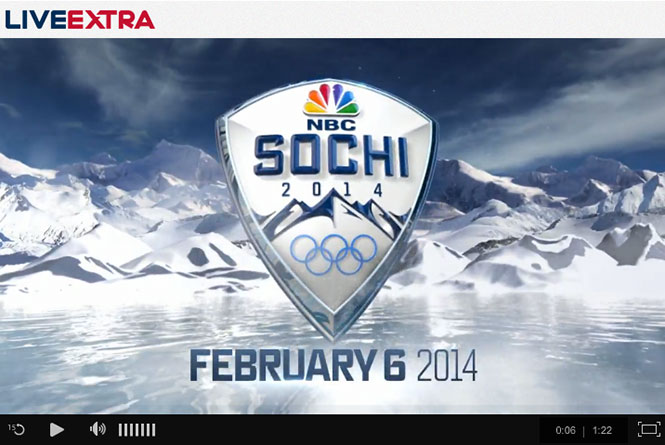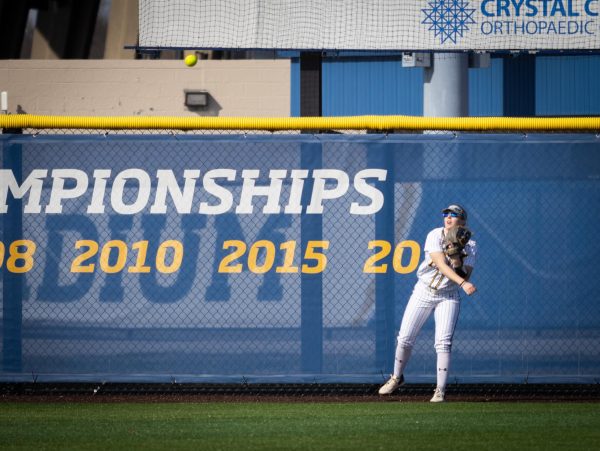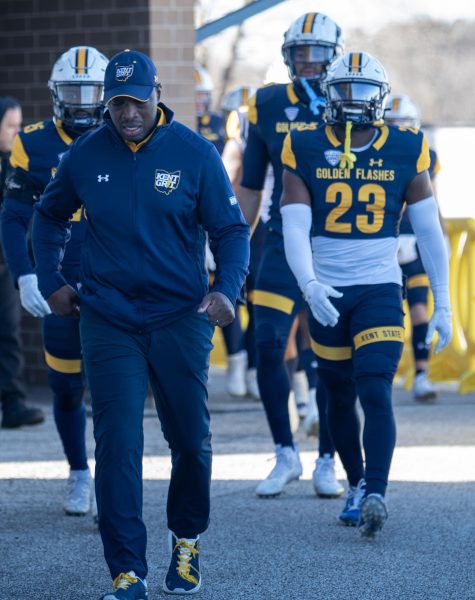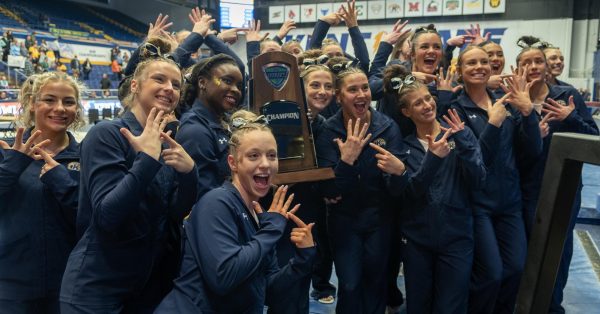Opinion: Make the Olympics available to everyone
February 11, 2014
The Olympics are one of the few events that can be accurately described as a shared cultural experience. It’s one of the rare instances in sports in which nationalism overrides regional ties, and in the winter, it’s the only time anyone pretends to understand the rules of curling.
I have numerous memories of a childhood spent watching NBC’s Olympics coverage on television. The network generally receives criticism for the kind of human-interest mongering that gives every American competitor a backstory Rick Reilly would froth at, but they really are the best in the business.
When Bob Costas isn’t battling a horrifying eye infection or making ill-advised comparisons between the sport of snowboarding and “Jackass,” he commentates with intelligence and wit. His approach is refreshing in a world dominated by ex-jocks and attention-seekers who would rather play the contrarian than add anything to a broadcast. And Mary Carillo’s “slice of life” features, in which she usually walks around the host city with a camera and a microphone, might be the most enjoyable bits of television to emerge from the whole enterprise.
But with the advent of online streaming and a viewing public who would rather watch on their own schedule than one dictated by a network, television is changing. And given this year’s Winter Olympics coverage, it’s clear that NBC has fallen behind.
There is always a challenge for American broadcasters when the Olympics are held in time zones that aren’t convenient to the traditional idea of “prime time.” Sochi is nine hours ahead of Eastern Standard Time, so by the time Costas and Carillo sit down for “Olympic Late Night,” they are covering day-old events while actual live competition goes on elsewhere.
There isn’t much that traditional television can do to resolve this, but it seems naive to assume that there are many viewers dedicated enough to watching the games when NBC decides to show them that they will somehow avoid all the numerous tweets, posts and general Internet chatter that report the results when they happen.
Broadcasters in other countries seem to have figured out how to deal with this dilemma. The BBC has built on its successful multimedia coverage of the 2012 London games and plans to produce 1,200 hours of coverage from the games in Sochi. Everything shown on television, in addition to full coverage of events that couldn’t be included live, is posted on BBC’s website and is available for free to anyone with a British IP address. In Canada, the CBC has had a similar coverage plan.
NBC, on the other hand, is not willing to part with its coverage so easily. The opening ceremony was not streamed live and ran only on television on a tape delay. Most of the events are streamed online, but users must either subscribe to a cable service or pay for NBC’s Live Sports Extra.
This might serve as a viable alternative for those who already pay for cable, but for the growing number of Americans who don’t, this leaves them with literally no way to watch the Olympics at home.
I live in a house with two other male, college-aged roommates. We have the usual tiffs that are integral to the communal living experience. But from the start, we have shared an essential ethos that has sustained our friendship and provided us with all the necessary distractions from actual responsibility — forget cable, let’s just get the fast internet.
As a soccer fan, I wouldn’t be able to watch my favorite teams even if we did pay for cable. This is the first season that NBC has broadcast English Premier League games, and it’s usually only one game a week. As a millennial familiar with the nether regions of the Internet, I can wake up with Liverpool, have lunch with Madrid and spend the afternoon with Santos every Sunday with just an HDMI cord, Adblocker and broadband. When you throw Netflix, Hulu, and countless other streaming sites into the mix, there is simply no reason to pay for what we can essentially get for free.
We are not so different than others in our demographic. Not only are young people watching less “traditional” television than older ones, but there are also significant data to support the notion that young people aren’t paying for television of any kind.
According to Bloomberg, 2013 was the first year that the number of pay-TV subscribers declined in history. And according to market researcher SNL Kagan, 3.2 million new U.S households were set up, while there were only 250,000 new cable subscribers.
Slate’s Will Oremus calls this new generation of viewers “cord-nevers.” These are young people who have never paid for satellite or cable television and have no intention of doing so in the future. Their effect on the industry will only grow as the cord-nevers get older, and there’s no evidence to suggest that subsequent generations will suddenly return to the habits of their grandparents.
By only streaming Olympics events to paying customers, NBC is missing the point. Sure, there are plenty of people who watch online to circumvent the ads, but if NBC provided an easy, legal way for people to watch its programming online, it’s reasonable to believe that ads, as they did for broadcast television, could become an accepted part of the process.
Advertising has historically been a main source of revenue for broadcasters, which is probably the main anxiety behind NBC’s decision to essentially shut out online-only viewers. But there isn’t anything inherent in streaming that makes it impossible to shift to a new, but similar, paradigm. The additional page clicks alone would make NBC’s website even more attractive to advertisers.
As it stands, the only way for me to follow the drama of the games is to trick my computer into believing it is in Britain and to watch the broadcast on the BBC’s site. This isn’t technically illegal, but it is in a bit of a gray area. As much as I have been enjoying a different perspective, if I could watch an American broadcast, I would.
There are plenty of aspects of the Olympics to get cynical about. The bidding process has devolved into a multi-billion dollar contest of ego, corporate sponsors have all but taken control and the event itself is used by governments to make grand political statements on a world stage. But as a fan of sports, I still get enthralled every two years by amazing shows of athleticism, beauty and emotion.
A friend of mine put it this way: “This should just be on everywhere, all the time.” The Olympics are one of few instances in which Americans all have the same dog in a race, and they are something experienced best when experienced together. NBC has a business to run, I know, but open access is not an antonym to commerce.

























